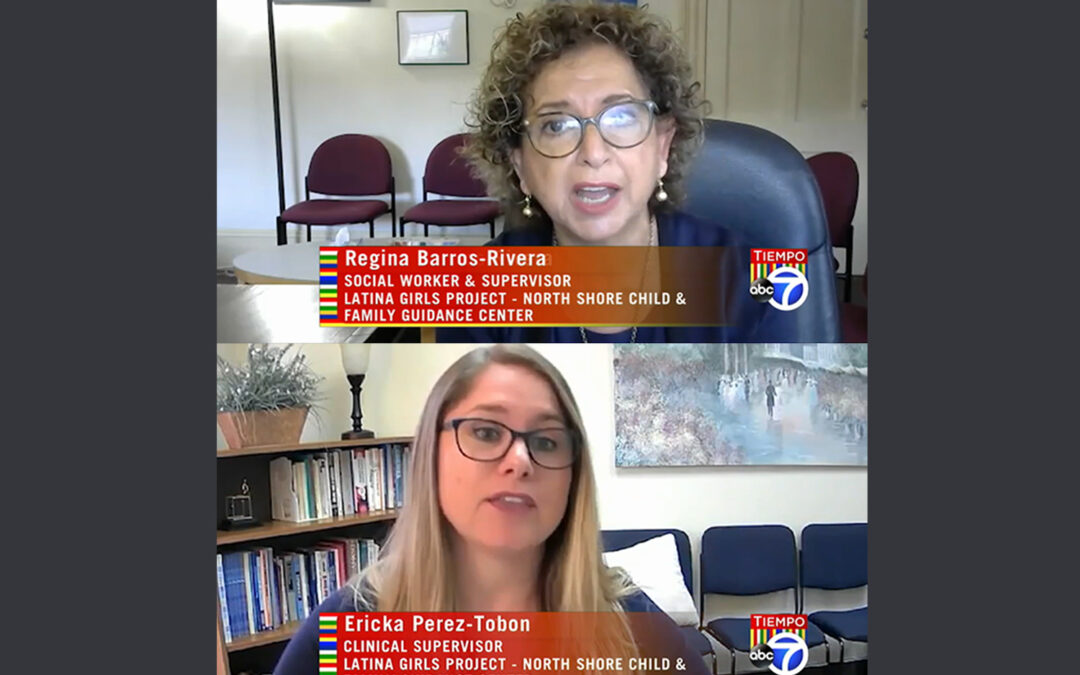

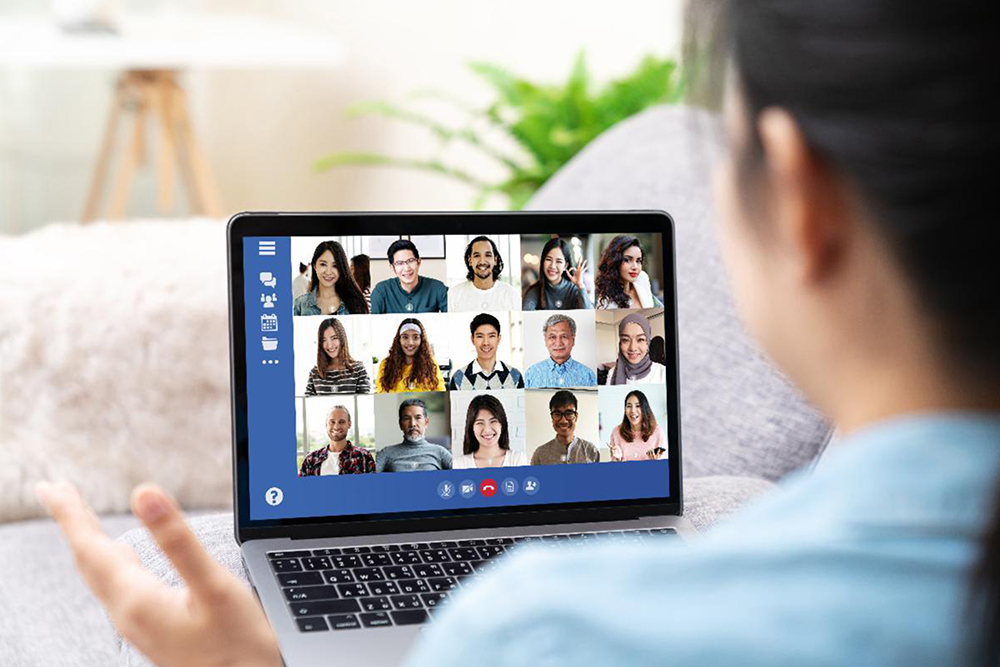
The Guidance Center: Annual Pupil Personnel Meeting
North Shore Child and Family Guidance Center hosted the annual pupil personnel webinar for teachers, administrators, social workers and school phycologists. The program addressed the social, emotional, developmental and academic health of children in our community.

Guidance Center Experts on the Transition to High School: Port Washington School Presentation
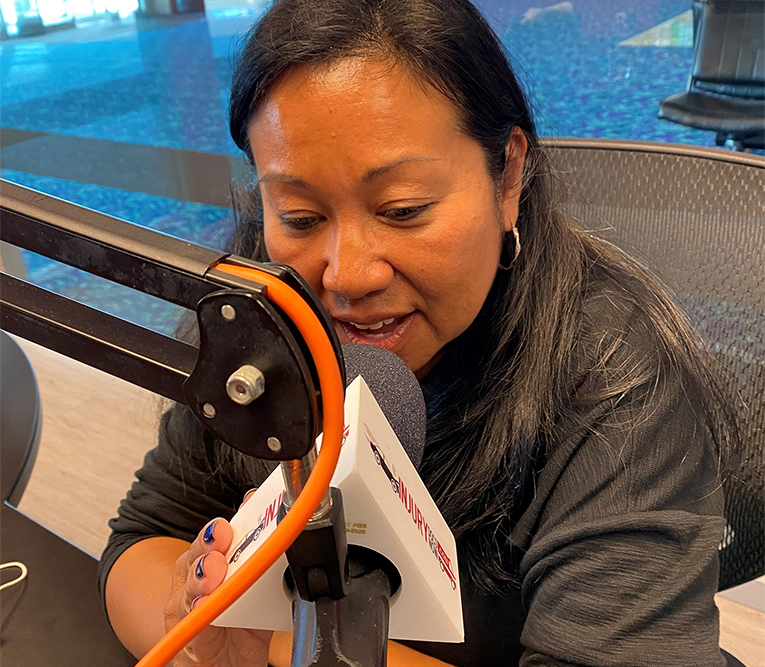
Kathy Rivera appears on radio show The Nonprofit Voice
Click link below to listen to the interview.

Ask the Guidance Center Experts
In the September 2021 column that ran in Blank Slate Media, our staff responds to parents’ concerns that their son may be suicidal.
In this monthly column, therapists from North Shore Child & Family Guidance Center answer your questions on issues related to parenting, mental health and children’s well-being. To submit a question, email communications@northshorechildguidance.org.
Question: We are terribly concerned about our 16-year-old son. Although he is back in school, he has little interest in his classes, and it’s difficult to get him to go to school most days. He’s decided not to try out for the basketball team, which used to be his favorite thing in the world. He’s also stopped reaching out to his friends and become very isolated. When we’ve asked him about all of this, his answer is usually a shrug of the shoulders and some version of “What’s the point, anyhow?” We are incredibly worried and not sure what to do. – Feeling Helpless
Dear Feeling Helpless: There may be no scarier words for a parent to hear from their child than “Some days I just don’t want to go on any longer,” or a similar sentiment. The reality is that children and teens are under more stress than ever, with suicidal thinking and suicide attempts on the rise – plus, the isolation and fear surrounding the pandemic has created a dramatic increase in severe depression and anxiety.
The facts are that suicide is the second leading cause of death for ages 10-24, and more teenagers and young adults die from suicide than from cancer, heart disease, AIDS, birth defects and other diseases combined.
While the problem isn’t new, the pandemic has exacerbated it. Kids’ normal routines were upended in so many ways. They lost milestones like proms, graduations, family gatherings, sports, afterschool clubs and other activities that are important for their development. Even though many of those events have resumed, they are still living with the uncertainty that everything could change at a moment’s notice.
Here are some of the warning signs that your child or teen may be at risk of suicide:
- Withdrawing from friends and family
- Mood swings
- Engaging in risky or self-destructive behavior
- Sleeping more or less than usual
- Changes in eating patterns
- Increased use of drugs or alcohol
- School refusal
- Being depressed and crying often
- Giving away possessions
- Posting suicidal thoughts on the Internet
- Talking about death and not being around anymore
- Cutting themselves
- Aggressiveness or irritability
Your first step should be talking honestly with your son about how he is feeling and communicate your concern in a loving, non-judgmental way.
Ask him directly if he has thoughts of suicide. The idea that talking about suicide will make your child more likely to act upon it is a myth. In fact, the opposite is true.
Let him know there is no shame in feeling depressed or sad and that he is not alone, especially given the unprecedented period we are experiencing.
Also ask him if he has a plan for suicide, since someone who has made a plan is at a higher risk and requires urgent attention. If the answer is yes, monitor him closely and seek immediate mental health services, either through the emergency room or an urgent mental health care facility. One option is Nassau County’s Mobile Crisis Intervention Team, 516-227-TALK.
It is very important that you consult a mental health professional for an assessment. Reassure your son that getting help is not a sign of weakness, but rather shows strength, and that despite his current state of mind, feelings don’t last forever. Allow him to give feedback on what he thinks might be helpful in his treatment.
Nassau County residents can contact us at North Shore Child & Family Guidance Center, which serves young people from birth through age 24.
We promise to see urgent cases within 24 to 48 hours. If, however, you fear that he is in imminent danger, bring him to the emergency room for an immediate evaluation.
North Shore Child & Family Guidance Center’s Douglas S. Feldman Suicide Prevention Project is designed to address high-risk cases with a thorough evaluation for suicide risk, therapy and a comprehensive treatment plan. To schedule an appointment, call us at (516) 626-1971 or email intake@northshorechildguidance.org.

Parenting, the Second Time Around
By Beth Whitehouse, Newsday, September 7, 2021
When COVID-19 took the life of 36-year-old Krystal Colman in April, Christina Colman, 60, of Coram, inherited a precious gift: her grandson Kacen, 2.
Colman was hospitalized with the coronavirus at the same time as her daughter, both in Stony Brook Hospital just after Easter. Krystal previously had pleurisy, an inflammation of the membranes that surround the lungs. When the elder Colman heard a “Code Blue” — which signifies a hospital emergency in a certain location — she said to her nurse, “That’s my daughter’s room.” Says Colman: “I wasn’t there when she took her last breath. I was beyond shocked.”
Colman, who works as an office assistant at Stony Brook Hospital, immediately went to court to get custody of her grandson; she plans to raise him with the help of another of her daughters, Jasmine, 31, an elementary school nurse.
“I’m not going to tell anyone that every day is peachy and sunny when you’re trying to raise a 2½-year-old,” Colman says. It’s especially challenging when mourning the loss of a daughter at the same time the child is mourning the loss of his single-parent mother. “It’s overwhelming.”

Credit: Raychel Brightman
But through word-of-mouth, Colman heard of a grandparent caregivers’ support group run by the Cornell Cooperative Extension in Riverhead. The group offers PASTA classes — it stands for Parenting the Second Time Around. The eight-week curriculum offers support to those being thrust into the new role and discusses child development, discipline and family law legal issues.
“It’s been a while since a lot of the grandparents have had 2-year-olds, 8-year-olds, teenagers in their home,” says Dinah Torres Castro, a bilingual family well-being educator for Cornell Cooperative Extension. They need to feel they can do this, she says.
HELP THROUGH PANDEMIC
Cornell also collaborates with the Amityville-based not-for-profit Hope For Youth to offer family engagement activities through a kinship caregiver grant. In August, the group resumed in-person events such as movies and field trips; a family picnic was held Aug. 30 at the Suffolk County Farm, just before Grandparents’ Day on Sept. 12. “Those things are very important when you’re going through these kinds of situations,” Colman says.Sign up for Newsday’s Family newsletter
The North Shore Child and Family Guidance Center also runs a free program called C-GRASP, Caregiver-Grandparent Respite and SupportProgram, for grandparents who are caregivers due to abandonment, substance abuse issues, incarceration or mental illness, says Nellie Taylor-Walthrust, director of the North Shore Child and Family Guidance Center’s Leed Place in Westbury. C-GRASP is run in conjunction with the Town of North Hempstead for caregiver residents 60 or older, she says.
It’s important for grandparents to see they’re not alone in what they’re doing for their families, and to be alerted to resources available to them. Grandparent caregivers often feel isolated, Taylor-Walthrust says.
“They have given up their retirement to take care of children. They don’t have a lot of social opportunities themselves.” The pandemic made their isolation and challenges worse, says Taylor-Walthrust.
“Many of them are not technologically savvy,” she says, needing guidance, for instance, with helping children to log on to their Chromebooks during at home schooling. They also initially had challenges getting food, and C-GRASP volunteers helped get supplies delivered to their doorsteps.
A CHANCE TO TALK
The hardest part for grandparent caregivers can often be financial, Torres Castro says. Extra mouths to feed, school supplies, doctors’ appointments — “it can be very costly,” Torres Castro says.
Melinda Stephenson, 45, an insurance verifier, and her husband, Dexter, 50, a care coordinator, of Hempstead are currently caring for five of their grandchildren, ages 8, 7, 5, 3, and 1 — after already raising seven children of their own. “Financially, it’s sometimes a struggle to take care of them, but we do it,” she says. She’s been able to talk to Torres Castro about such issues, she says.
The opportunity to talk to others is also valuable for Colman. “That’s not my greatest strength, talking about my daughter. When I start talking about my daughter, I turn into mush,” Colman says. Her daughter and grandson had already lived with her, so she feels Krystal’s absence even more strongly. Her grandson will often want to spend time in his mother’s former bedroom, Colman says.
Colman has done some virtual events and looked forward to meeting the other families in person with Kacen at the Aug. 30 family picnic, which she expects to help them move forward with healing.
“People need people. We’ll be able to hug each other, and if we can’t, we can at least hold hands. We’ll be able to laugh together, cry together, share together.”
By Beth Whitehousebeth.whitehouse@newsday.com @BethWhitehouse1
Beth Whitehouse writes about families, parenting and great things to do with the kids on Long Island. She’s been a Newsday editor and shared a 1997 Newsday staff Pulitzer Prize for coverage of the crash of TWA Flight 800.
Top Photo Credit: Christina Colman, 60, of Coram, sits on the porch with her grandson Kacen, 2. Credit: Raychel Brightman
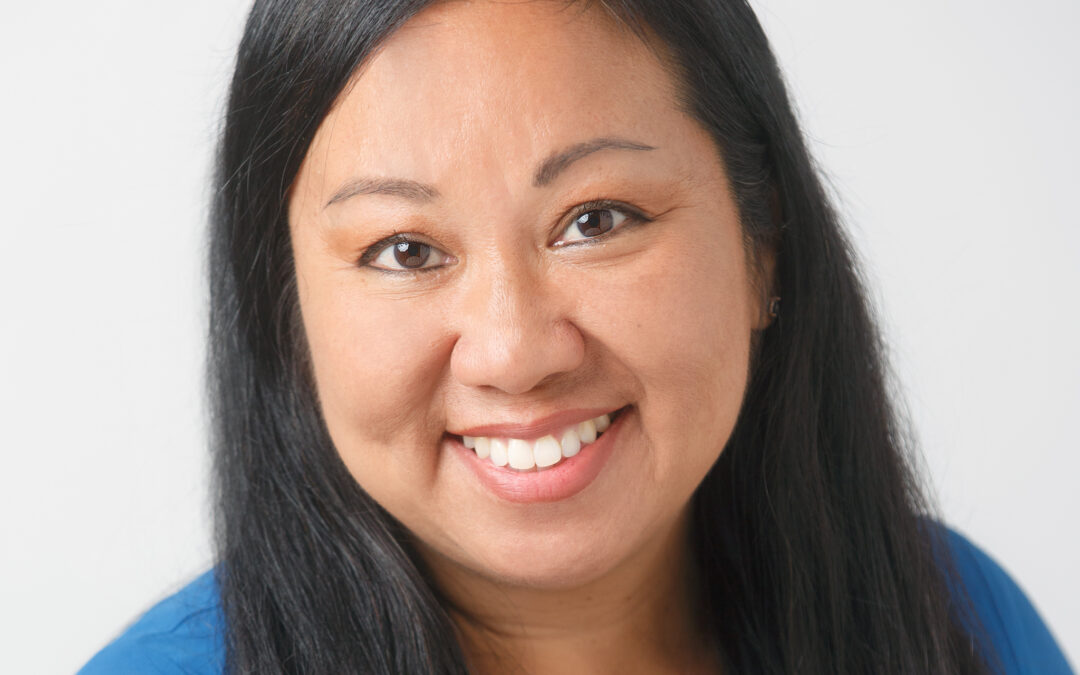
What Simone Biles Has Taught Us
Published originally in Anton Media, Parenting Plus column, August 20 2021, By Kathy Rivera
After working in the mental health field for more than two decades, it should have come as no shock to me when I read some of the negative responses to Simone Biles’ announcement that she was pulling out of the Olympics team competition due to anxiety and other emotional challenges—but it stung, nevertheless.
On social media, TV and other outlets, outraged commenters called her everything from a coward to a quitter to a spoiled brat. Texas deputy attorney general Aaron Reitz went so far as say that Biles was a “national embarrassment.”
Former British TV host Piers Morgan tweeted, “Are ‘mental health issues’ now the go-to excuse for any poor performance in elite sport? What a joke. Just admit you did badly, made mistakes, and will strive to do better next time. Kids need strong role models, not this nonsense.”
Would these naysayers have been so harsh if Biles had pulled out because of a broken foot or burst appendix?
These comments are a clear sign that stigma surrounding mental health issues is still pervasive. Fortunately, however, there was some very positive news: The level of support for Biles from other athletes, celebrities, public figures and everyday people far outweighed the negativity, with many describing her frankness in discussing mental health as brave and inspiring.
Olympic swimming champion Michael Phelps, who has been open about his own mental health challenges, put it this way: “We’re human beings. Nobody is perfect. It’s OK to not be OK. It’s OK to go through ups and down and emotional rollercoasters. The biggest thing is, we all need to ask for help when we go through those times.”
While few of our children are under the intense public scrutiny as are Biles, Phelps, tennis star Naomi Osaka or the many celebrities who have been discussing their mental health issues, they still face enormous pressures, especially given the disruption and fear brought on by the pandemic.
At North Shore Child & Family Guidance Center, we’ve been receiving a growing number of calls from parents concerned about their children and teens’ mental health. Many describe classic signs of depression and anxiety: withdrawal from friends, lack of interest in activities that normally gave them pleasure, mood swings, agitation, sleeplessness (or oversleeping), changes to eating patterns, substance abuse—even thoughts of suicide.
While mental health issues existed in kids long before the pandemic struck (an estimated one in five youth experience a mental illness), I believe we are on the verge of a crisis that may well surpass anything we’ve ever experienced. For many young people, their very foundations were shaken apart during the pandemic, with fear and hopelessness about the future enveloping them to the point of unending despair.
How can you help? The situation with Simone Biles has provided an opportunity for families to discuss stigma and for caregivers to teach kids that no one should ever feel ashamed if they are feeling sad, anxious or emotionally overwhelmed. You can tell your children that Simone was brave to speak out and put her mental health first. You can also let them know that you are there for them, without judgment and with an open mind and heart, whenever they are feeling down.
You can also encourage your schools, religious organizations, medical professionals and other community resources to include discussions about mental health and provide resources for kids who are having difficulties. Don’t hesitate to reach out to mental health organizations like ours for information and support.
Bottom line: It’s everyone’s responsibility to educate themselves about mental health and to stand up to stigma. Let’s use the opportunity surrounding Simone Biles’ brave decision to open up about her struggles to provide our kids with the knowledge, support and understanding they will need during the challenges that lie ahead.
Kathy Rivera, LCSW, is the new Executive Director/CEO of North Shore Child & Family Guidance Center, Long Island’s leading non-profit mental health organization which has been serving our community for nearly 70 years. The Guidance Center never turns anyone away for inability to pay. To get help for your child or to support the organization’s life-saving work, call (516) 626-1971 or visit www.northshorechildguidance.org.
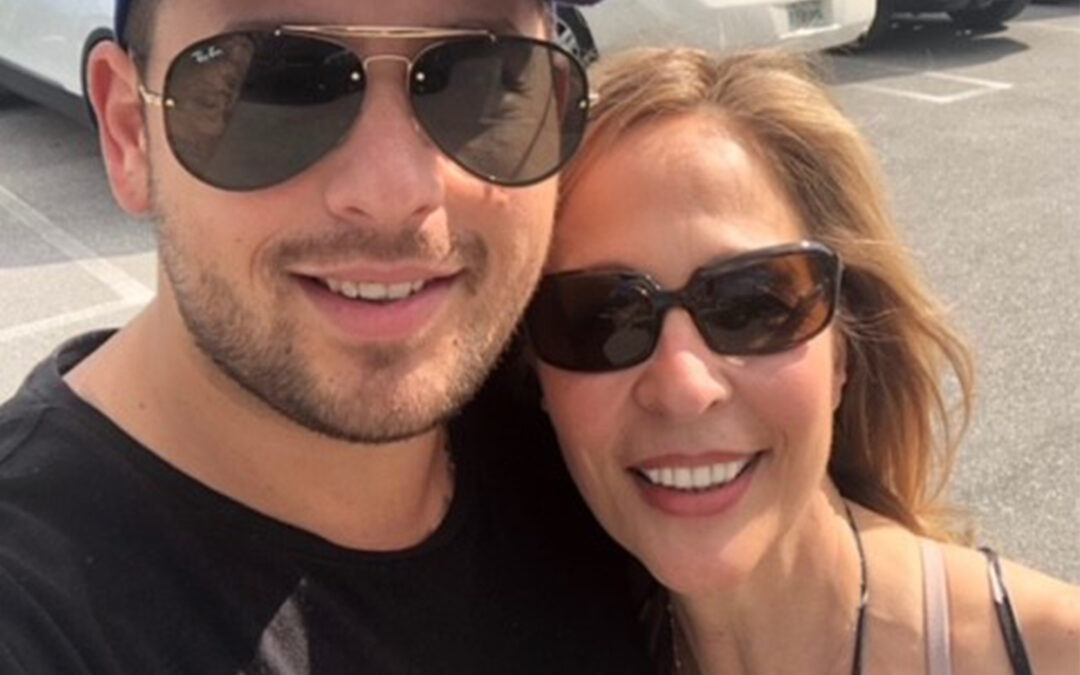
The Ultimate Loss: A Family’s Story Of Addiction In The Age Of Killer Drugs
Last month, family and friends of Jason Witler, a 2011 graduate of Syosset High School, gathered at the high school baseball field to celebrate the life of a young man who died this past April from an accidental overdose of a drug laced with fentanyl. The event, the Jason Daniel Witler Memorial Home Run Derby, raised funds to support the work of North Shore Child & Family Guidance Center, Long Island’s leading children’s mental health agency, which has an outpatient adolescent chemical dependency program.
Three of Jason’s closest friends—Ashley Sullo, Jordan Slavin and Max Ferro—came up with the idea of the Home Run Derby shortly after Jason’s death, explains Slavin, who had been close to Witler since kindergarten.
“Several of us talked about getting together to share memories of Jason, but we realized that he would want us to do something to make people in the community happy, because he loved to make everyone laugh and smile,” Slavin said. “We also wanted to raise money for an organization that was important to Jason and his family that provides help for people struggling with addiction.”
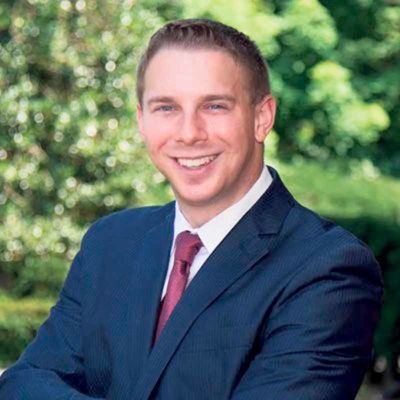
The trio asked their Syosset High School classmate and Nassau County Legislator Josh Lafazan to help, and he was quick to join the effort, which drew more than 100 attendees.
“I am overwhelmed with gratitude to all who came out to show support and participate in the Jason Daniel Witler Memorial Home Run Derby,” Lafazan said. “Working with community partners, we were able to raise thousands of dollars in Jason’s memory to support the critical work that North Shore Child & Family Guidance Center does on Long Island.”
The Journey Of Addiction
According to Bonnie Witler, Jason’s mother, her son’s addiction issues began in his mid-teens. “One night, Jason came home after being out with his friends and my daughter came running into my room and said, ‘Mom, come downstairs! Jason’s barred out.’ I had no idea what she meant, but later learned it meant he was high on Xanax.”
For her part, Witler’s sister Dana had seen many friends with addiction issues, so she knew the signs when she saw them in her brother. “Addiction devastates families,” she says. “It usually starts small, with drugs like Percocet and Roxies [both opioids], but eventually they move on to cheaper and easily available drugs, even heroin, because they don’t have the money to keep up with it.”
Sadly, Witler’s addiction struggles are all too familiar for many families on Long Island and across the country. According to government reports, nationwide overdose deaths reached a record 93,000 in 2020. On Long Island, fatal drug overdoses rose 34 percent in Nassau and nearly 12 percent in Suffolk, and many experts believe the pandemic played a role in that increase.

(Photo courtesy of the Witler family)
Our country has been facing a worsening and deadly overdose epidemic for the past several years, and fentanyl—the drug responsible for Witler’s accidental death—is a huge factor. According to the Centers for Disease Control and Prevention, fentanyl was involved in more than 60 percent of nationwide overdose deaths last year.
“Fentanyl is a powerful pain pill that’s being cut into heroin, cocaine and other drugs,” says Dr. Nellie Taylor-Walthrust, Director of the Leeds Place, North Shore Child & Family Guidance Center’s Westbury facility that houses its outpatient chemical dependency program. “It’s up to 100 times stronger than morphine, which makes it extremely cheap—and extremely deadly.”
Mental Health And Addiction
Witler’s family sought help from a variety of addictions specialists during his teens. After a year-plus stretch in inpatient rehab, he returned to Syosset High School in his senior year, to the delight of his many friends. He was sober—but Bonnie Witler soon realized that her son’s issues were complicated.
“As we were getting ready to shop for Jason’s senior prom, he had a meltdown,” she explained. “I took him to the emergency room, and they said he’d had a manic episode.”
This was the first time anyone had suggested that Jason had a mental health condition. “I then knew that he’d been misdiagnosed most of his life,” says Witler.
Indeed, mental health challenges and addiction struggles often go hand in hand, says Taylor-Walthrust. “With the increased number of youth and adolescents seeking treatment for co-occurring disorders, the most effective outcome is to treat both disorders simultaneously,” she explained.
Witler eventually moved to Florida for treatment, and Sullo, Jason’s girlfriend from Syosset, moved down to live with him. He got a job in real estate, and his life seemed to be on the right track.
“Jason was doing so well,” Sullo said. “He was clean and sober for five years, and he was dedicated to helping others stay drug-free. He was such a kind soul.”
She shares just one example: “Jason saw a guy he knew from a 12-step meeting at a gas station, and the kid didn’t look well,” Sullo recalled. “Jason made a point to get his number. For weeks, he called him every day, and they went to meetings together. He really cared about other people.”
A Mother’s Grief Turns To Activism
No one is sure what happened that caused Witler’s relapse, according to his mother and friends. The pandemic isolation may have been a factor, they say, but that’s only a guess.
As for Bonnie Witler, who moved to Florida a few months prior to Jason’s death to be near her son, her devastating loss has been made more bearable by her new role as an activist in the battle against addiction and the fentanyl crisis.
“I call myself a MOM, for ‘Mom on a Mission,’” Witler said, who is an active participant in various committees focusing on substance abuse, mental health and the fentanyl crisis. Witler was honored to be included in Sober House Task Force meetings created in July 2016 by Palm Beach County State Attorney General Dave Aronberg. The task force’s work has led to new regulations of sober homes and treatment centers in Florida that have become the model for other states.
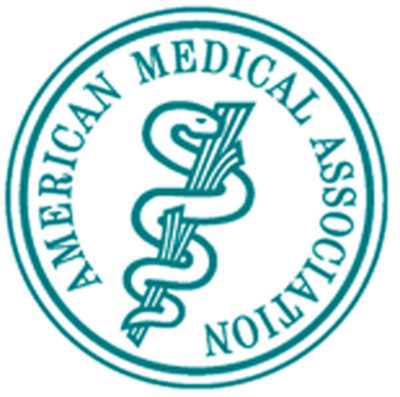
Witler, who recently appeared on WSVN news channel in Florida, is also working with the head counsel of the American Medical Association to lobby congress to pass legislation related to the fentanyl crisis.
“Although many drug users have heard about the dangers of fentanyl, their addiction is too strong,” Witler said, “They are playing Russian Roulette.”
She adds that, because of fentanyl, “drugs are now weapons of murder. Dealers are actually charged with homicide.”
Acknowledging the widespread impact of addiction, Witler’s sister Dana said, “This is not just a Witler family problem, it’s a community problem, and that’s why sharing his story is so important. People need to realize that there’s help out there. We need to end the stigma, so people don’t think they have to handle this all alone.”
A Community Comes Together
The Jason Daniel Witler Memorial Home Run Derby provided a wonderful opportunity for Jason’s friends and family to comfort each other and to honor the life of a young man who cared deeply for others. The community responded in a big way. That day, more than $8,000 was raised, but through the generosity of the incredible people who made contributions in Jason’s memory before and after the event, the total reached more than $35,000, which will support the Guidance Center’s important work.
Ken Witler, Jason’s father, was awed by the large turnout. “It was all because of the hard work of Ashley, Jordan and Max, along with Josh Lafazan and his staff.” He added, “We’re glad that the proceeds will go to the Guidance Center, knowing they will be used to help kids and families struggling with addiction issues.”
Bonnie Witler says that she was “elated” for most of the day at the memorial, as so many young people and parents approached her about how much they felt her son was a part of their family and that “they loved having him around, with his great smile and big laugh.”
By the end of the day, however, the grief overcame her as she explained, “It comes in waves, and you have to feel your feelings.” But she feels best when doing all she can to prevent other families from undergoing the tremendous loss that she and her family now live with every day.
“The pain of losing a child is so enormous that some days I just don’t think I can make it,” she said. “But if I can help another life, it gives me reason to go on. Maybe Jason’s life will save hundreds of others.”
—Jenna Kern-Rugile is the Director of Communications at North Shore Child & Family Guidance Center
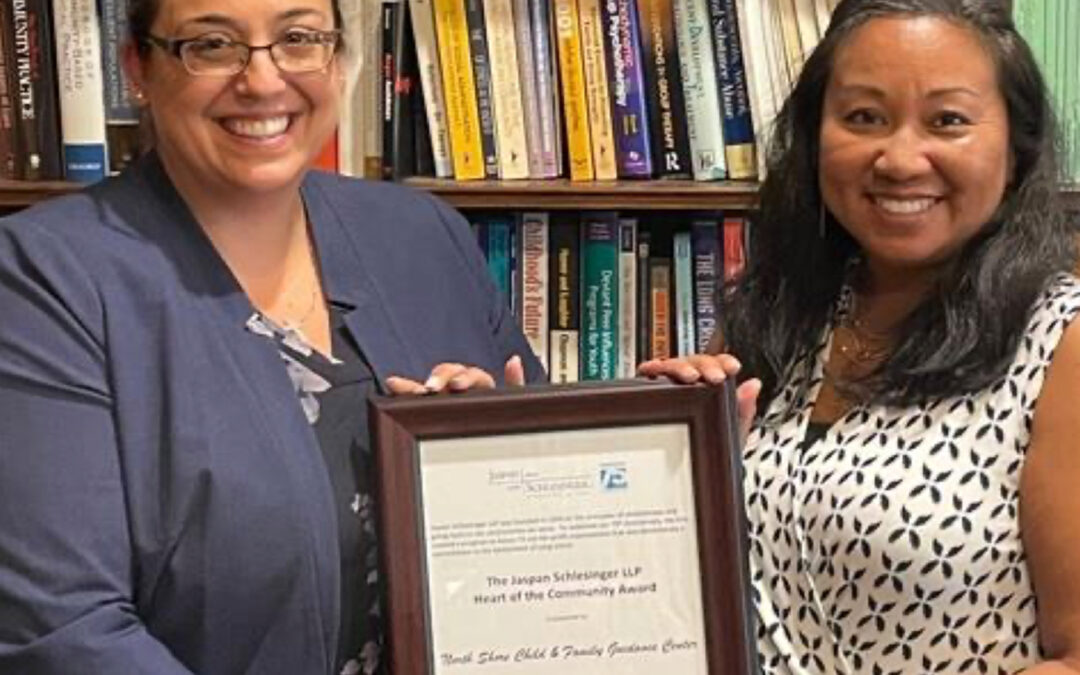
Jaspan Schlesinger Presents Guidance Center with Heart of the Community Award, July 2021
Since 1953, North Shore Child & Family Guidance Center has been the leading community-based not-for- profit specialty children’s mental health organization on Long Island. Their staff is specially trained in working with children and teens (from birth to age 24) and their families. The Guidance Center provides bilingual mental health and chemical dependency services, behavior management, parent education, maternal depression services, suicide prevention, medication management and psychological and psychiatric evaluations, as well as advocacy and care coordination services. They also provide a rapid and thorough response to emergencies through their triage, emergency and high-risk teams composed of their most experienced staff members. The Guidance Center brings hope and healing to the Long Island community and never turns anyone away for inability to pay.
Marissa Pullano, a partner in Jaspan Schlesinger’s’ matrimonial and family law practice group, has been a supporter of North Shore Child & Family Guidance Center as a result of her practice in Nassau Family Court. Prior to the COVID-19 pandemic, the North Shore Child & Family Guidance Center ran a day-care center for children and families interacting with the Family Court System. Marissa and the Firm are happy to support North Shore Child & Family Guidance Center in their mission to support the mental health needs of our community’s children and teens and their families.
Pictured: Marissa Pullano, Jaspan Schlesinger LLP (left) Kathy Rivera, Executive Director (right)

Providing a Safe Space for LGBTQ+ Teens, Originally published in Anton Media Newspapers Parenting Plus column, July 21, 2021
By Elissa Smilowitz
Recently, I spoke with a mother who was navigating an issue that has become increasingly common for many families here on Long Island and across the nation. Her 12-year-old daughter told her that she thinks she may be a lesbian, but that she’s feeling confused. The mom asked me how to best approach this conversation so her daughter would feel comfortable sharing her thoughts without fear of being judged or rejected.
The first thing I told this mom was that it’s very promising to hear that she is keeping the lines of communication open and assuring her daughter that she can trust her family to be supportive as she ponders these deeply personal questions.
More and more, we see clients at the Guidance Center who identify as part of the LGBTQ+ community; some call themselves gay or lesbian, while others are exploring their gender and/or sexual identity. Research indicates that a growing number of teenagers are identifying themselves with nontraditional gender labels such as transgender or gender-fluid, and our experience backs that up.
Regardless of the names that are used, one thing is a constant: When young people face disapproval from their families based on preferences or gender issues, they are far more likely to experience depression, anxiety, substance use and suicidal thoughts.
Research from the Centers for Disease Control and Prevention reveals the dangers of rejection. The CDC reports that LGBTQ+ youth contemplate suicide at almost three times the rate as heterosexual youth. In addition, LGBTQ+ youth who come from “highly rejecting families” are 8.4 times as likely to have attempted suicide as their LGBTQ+ peers who reported no or low levels of family rejection.
Some more eye-opening statistics: According to the Human Rights Campaign’s report, Growing Up LGBT in America, a survey of more than 10,000 LGBTQ+-identified youth ages 13-17:
- 4 in 10 say the community in which they live is not accepting of LGBTQ+ people.
- They are twice as likely as their peers to say they have been physically assaulted, kicked or shoved.
- 26% say their biggest problems are not feeling accepted by their family. Other top concerns include trouble at school/bullying and fear to be out/open.
- More than half (54%) say they have been verbally harassed and called names involving anti-gay slurs.
- LGBTQ+ youth are more than twice as likely as non-LGBTQ+ youth to experiment with alcohol and drugs.
- 92% say they hear negative messages about being LGBTQ+. The top sources are school, the Internet and their peers.
Kids around the ages of 12 – 13 are at a time in their lives when they are discovering who they are, and for some, that brings up issues surrounding their sexual preferences and gender identity. As the CDC research shows, parental response is enormously important.
Youth who are exploring these issues need the unconditional support of their families, as they do with any other life concerns. They need to know they can be themselves without risking judgment.
The best response is clear: Express unconditional love and acceptance. Whether or not an adolescent ends up identifying as LGBTQ+ doesn’t change the fact that parents need to be calm and supportive. Tell them you will love them the same no matter what, and that you are there for them always.
There are some great resources to help you on this journey. One is The LGBT Network, an association of non-profit organizations working to serve the LGBTQ+ community of Long Island and Queens throughout their lifespan. It includes a group specifically for young people, called the Long Island Gay and Lesbian Youth (LIGALY), which works to build community, provide a home and safe space for all, end anti-LGBTQ+ bullying and prevent suicide. Nationally, The Trevor Project also provides lots of helpful information.
If your child or teen shows signs of depression or other mental health challenges, don’t hesitate to get help from a professional. To make an appointment at North Shore Child & Family Guidance Center, call (516) 626-1971 or email intake@northshorechildguidance.org.
Elissa Smilowitz is the Director of Triage, Emergency & Suicide Prevention at North Shore Child & Family Guidance Center, Long Island’s leading children’s mental health agency.
Gender identity terms
- Gender identity: A person’s deeply held internal sense of being male or female or somewhere else on the gender spectrum.
- Sex assigned at birth: The classification people are given at birth regarding sex and, typically, gender, usually based on genitalia.
- Transgender: A person whose gender identity is different, and often fully opposite, from their sex assigned at birth.
- Cisgender: A person whose gender identity is the same as their sex assigned at birth.
- Gender nonbinary: A person who identifies as both male and female, or somewhere in between male and female.
- Gender fluid: Your sense of where you are on the spectrum of male to female can change over time, even from day to day.
Sexual identity terms
- Lesbian: A woman who wants to be in a relationship with another woman.
- Gay: A man who wants to be in a relationship with another man (though sometimes lesbians also use this term).
- Bisexual: Someone who is sexually attracted to both men and women.
- Pansexual: Someone who is interested in having relationships with all genders.
If your child or teen is expressing suicidal thoughts or feelings, we can help through our Douglas S. Feldman Suicide Prevention Project. To learn more, click here.

Guidance Center Launches New Suicide Prevention Program, Spring 2021
It is a phone call the staff at North Shore Child & Family Guidance Center gets all too often: A parent is in despair, saying their son or daughter is experiencing severe depression, anxiety and thoughts of suicide. And the situation has worsened due to the COVID-19 virus. “The isolation brought on by the pandemic is hard on everyone, but it’s especially difficult for young people,” says Regina Barros-Rivera, Associate Executive Director at the Guidance Center, Long Island’s leading children’s mental health organization.
Sadly, suicide among young people is not a new problem. According to the Centers for Disease Control and Prevention, suicide is the second-leading cause of death for Americans ages 10-24, with more teens and young adults dying from suicide than from cancer, heart disease, birth
defects and other major illnesses combined. This past September, the Guidance Center launched a new program, the Douglas S. Feldman Suicide Prevention Project, an expansive initiative that aims to tackle the epidemic of suicide among young people. “Through the Douglas S. Feldman Suicide Prevention Project, we will bring essential, life-changing services to the children and families in our community,” says Elissa Smilowitz, who is heading up the new program. “We will address high-risk cases with a thorough evaluation for suicide risk; multiple weekly sessions of individual, group and family therapy; and a culturally sensitive treatment plan that focuses on safety strategies, healthy coping skills and relapse prevention.” Evaluation with a psychiatrist regarding the possible use of medication will also be provided,
along with in-home treatment and referrals to programs and services that will support parents’ efforts to protect their children. The Guidance Center will also provide educational forums and a suicide survivors’ support group for those who suffer this tragic loss. Andrew Malekoff, Executive Director of the Guidance Center, says, “We are grateful to the Feldmans for enabling us to develop a suicide prevention initiative that will enhance our ability to reach young people who may see no way out from the despair they are feeling. It’s a prime example of how our dedicated supporters (including the Community Chest) make a profound difference in the well-being of our community.” He adds, “Join us in spreading the word to schools, community organizations and friends. Information is power, and this program can save lives.”

Unitarian Universalist Congregation Awards Half Million in Grants, Blank Slate Media, July 8, 2021
Half a million dollars will be distributed by the Unitarian Universalist Congregation at Shelter Rock to combat food insecurity, homelessness and educational disadvantages exacerbated by COVID-19.
The funding, in addition to $170,000 distributed last year, will go directly to 19 Long Island organizations in the form of unrestricted grants. Recipient organizations include Island Harvest, Sunnyside Community Services and others addressing a range of social needs.
Jana North, who was recently appointed president of the congregation, said she was glad to provide aid to address pandemic emergencies.
“When COVID hit, there was a very strong sense within the congregation that they wanted to try to support local organizations that were going to get hit very hard,” North said. “What we really needed to do was give a substantial amount.”
The most recent round of emergency funding was voted on by the congregation to meet immediate needs. This stands apart from the Veatch program, which awards millions of dollars a year.
“We wanted the money quickly, we wanted the money to go locally, and we wanted it to go to organizations that were doing things right now,” North said. “That brought it out of the sphere that we usually give through the Veatch program.”
In the early days of the pandemic, the congregation was awarding smaller groups of grants near $50,000. Now, the total amount of aid given by the church is closing in on $700,000.
The most recent half million in grants were awarded to organizations selected by a task force, which narrowed down a list from approximately 60 to just under 20. Those groups have set goals aligned with the congregation’s values, according to North.
The other groups that received grants were the Central American Refugee Center, Central Nassau Guidance and Counseling, Choice for All, Elmcor Youth & Adult Activities, Health and Welfare Council of Long Island, Housing Help, La Jornada, Littig House Community Center, Long Island Crisis Center, Manhasset-Great Neck Economic Opportunity Council, NAMI Queens/Nassau, New Ground, North Shore Child and Family Guidance Center, OLA of Eastern LI, Queens Together, SEPA Mujer and St. Aloysius Roman Catholic Church in Great Neck.
“These organizations are pretty well known to us and have been for years,” North said. “The grantees seem to be very pleased to get it and I was glad that we could do it.”
“We have a very active social justice group within the congregation,” North said of the Shelter Rock congregation, which is one of over 1,000 across the country.
“Since this happened, we’re sure aware of what happens when something like this affects so many nonprofits that are already teetering on the edge locally,” North said. “I do think it has made us very aware of the need and I think we’d like to be part of that answer.”

Ask the Guidance Center Experts, Blank Slate Media, July 2021
In this monthly column, therapists from North Shore Child & Family Guidance Centeranswer your questions on issues related to parenting, mental health and children’s well-being. To submit a question, email communications@northshorechildguidance.org.
Question: Our grandson’s pediatrician recently suggested his parents get him screened for autism. We’re so worried and not sure where to turn. Help!
- Panicked Grandparents
Dear Panicked Grandparents: There are a wide range of autism spectrum disorders, also known as ASD, and many people with the condition live very happy lives. Your first step: Get educated.
Most babies start to show an interest in the world and the people around them at a very young age. By their first birthday, typical toddlers look people in the eye, copy words, play games like peek-a-boo and engage in clapping, waving hello and good-bye and other simple behaviors.
According to the Centers for Disease Control and Prevention, people with ASD—which is a complex developmental disability that manifests in many different ways and to many different degrees—may struggle with social, emotional and communication skills.
Children or adults with ASD might…
- show no interest in objects (for example, not point at an airplane flying over)
- avoid eye contact
- prefer not to be held or cuddled
- appear to be unaware when people talk to them, but respond to other sounds
- repeat or echo words or phrases said to them
- have trouble expressing their needs using typical words or motions
- have trouble adapting to changes in routine.
Other signs include a child not responding to his or her name when called; repeating actions over and over; and having highly restricted interests.
Early intervention is important, but even with older children, treatment can result in real improvements. At North Shore Child & Family Guidance Center, we provide thorough testing and, depending on the results, will create a customized therapeutic treatment plan, which often includes social skills groups and play therapy.
Support groups for caregivers are also very helpful. In addition to parent support groups, we have a program called GASAK, which stands for Grandparent Advocates Supporting Autistic Kids.
Also, our staff includes family advocates who often get involved in the cases, helping clients get appropriate services from their schools and other providers.
The bottom line: It’s important to determine the child’s needs and come up with a good educational and therapeutic plan. Although people with ASD may face challenges, a diagnosis doesn’t mean your grandchild won’t experience feelings of love, bonding and joy. The child is still the same loving child they were before the diagnosis. It’s a condition they have, but it doesn’t have to define their life.
Question: Now that it’s safe to be with their friends, how can I convince my kids to put their phones and tech devices down?
- Sick on the Screens
Dear Sick of the Screens: During the height of the pandemic, many families made allowances for extra time on screens and now face resistance to reestablishing more strict limits.
No parent wants technology to rule the roost, especially if it’s making your children isolated. Remember, you have the power!
- Set aside specific times at home when no one (parents included) uses technology. Cell phones, computers, iPads—all must be off. Tech-free time can be spent reading, talking, playing games, cooking, making art… anything creative or social will do.
- Establish a clear schedule. When it comes to gaming, many parents may allow 30 minutes a day during the school week and two hours a day on the weekends.
- When possible, keep all technology in a common space like the living room — not in a child’s bedroom. Avoid allowing your kid to disappear for hours behind a closed door.
- Utilize online services that filter out inappropriate or violent material. These services can also limit Internet access by scheduling times that the Internet is available and times when it is not.
The way you use tech devices influences your ability to effectively guide your children. Although your example is not the sole factor, keep in mind that as distant as some kids become from adults as they are moving through their teen years, they continue to observe you—more closely than you know.
During the pandemic, North Shore Child & Family Guidance Center is seeing clients remotely via telehealth platforms or, when deemed necessary, in person. To make an appointment, call (516) 626-1971 or email intake@northshorechildguidance.org.
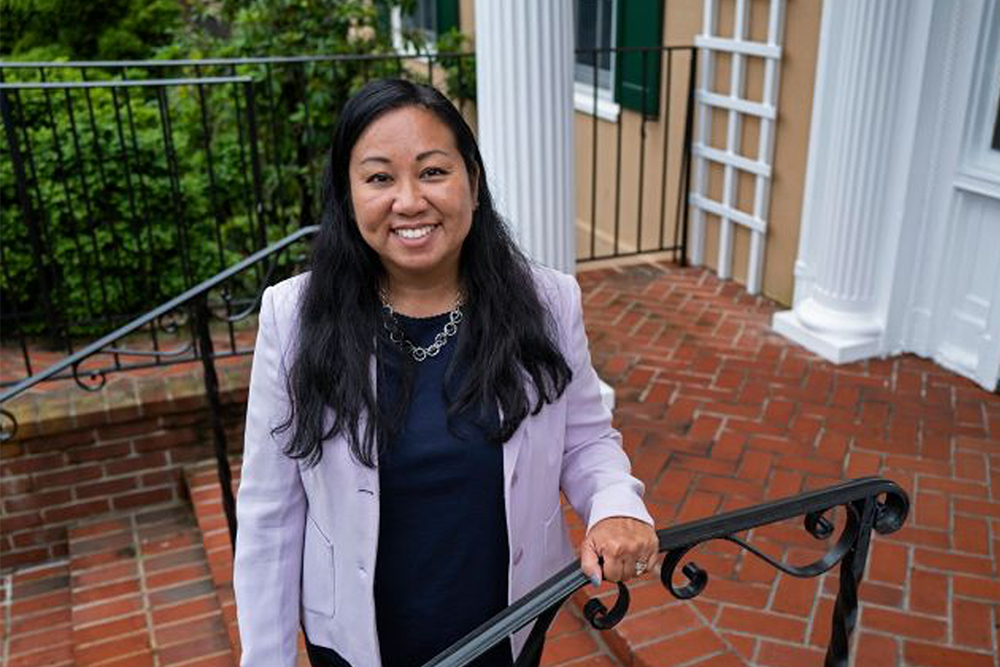
New exec director at mental health nonprofit applies her life experience to help others, Newsday, July 6, 2021
Kathy Rivera became the first woman of color to take the helm of North Shore Child & Family Guidance Center when she assumed the executive director role last month at the Roslyn Heights-based nonprofit.
The organization provides mental health services for Nassau County’s children and young adults. Newsday recently spoke with Rivera, 47, of Fresh Meadows, about the pandemic’s impact on youth mental health and how her upbringing as a first-generation Asian American shaped her work.
Q. How did you get interested in the field of social work?
There has been a history of mental health issues in my immediate family. I have … witnessed domestic violence, food insecurity and housing instability. So from a very young age developmentally, I was exposed to that. So it was not surprising that as I got older, in recognizing what my own needs were growing up and experiencing all of this, I knew I wanted to find a profession where I could help communities that struggled with issues that I struggled myself with.
Q. How did your upbringing as a Thai American with immigrant parents shape your understanding of what you do?
In the Asian culture in general, mental health is often frowned upon. … What I experienced going back to my childhood [shaped] what I recognize [in] a lot of our communities that we serve. Parents sometimes don’t seek help because they fear it is a reflection of them as being a bad parent. It can feel embarrassing to ask for help, and so they don’t. . . . So [it’s] realizing that how not getting the right … help at the right time can really cause lifelong damaging changes and fracture a family.
Q. Has your organization seen a rise in cases during the pandemic?
We have gotten more calls for our triage unit from local hospitals and urgent-care centers where children are at risk of an inpatient hospitalization. … We’ve been finding more and more calls coming in and actually even for some younger kids. At one of our sites, we even are treating a 4-year-old [for mental health]. … We’ve definitely been getting calls from parents as well, really worrying about the social impact of the pandemic, the isolation, just the overall mental well-being of their own child and asking for their child to engage in therapy. So we’ve been seeing it from families, too, more so than in the past.
Q. How do people go about getting services from your organization?
Anyone who needs our services can just be a phone call away. … Our payer mix is a combination between self-pay, commercial insurance to Medicaid. And for those who have a struggle where the service may not be covered but yet they need it, we find a way to raise funds and cover those costs.
Q. Anything else you want to add?
One thing that I want to give the pandemic credit for is the exposure of the mental health crisis in our children. Again, it did not cause it, it exposed it, and it enhanced it. And I think that it helps naturalize it — being able to talk about it without the stigma.
Please click to watch the video
North Shore Child & Family Guidance Center
- The nonprofit was founded in 1953 and served 2,590 clients (from birth to age 24) in 2020.
- Rivera said her organization has seen a roughly 45% increase in intakes from pre-pandemic times to now.
- The agency serves Nassau County but at times accepts residents in Queens, Brooklyn and Suffolk counties through its maternal depression program, Rivera said.
By Dandan Zoudandan.zou@newsday.com
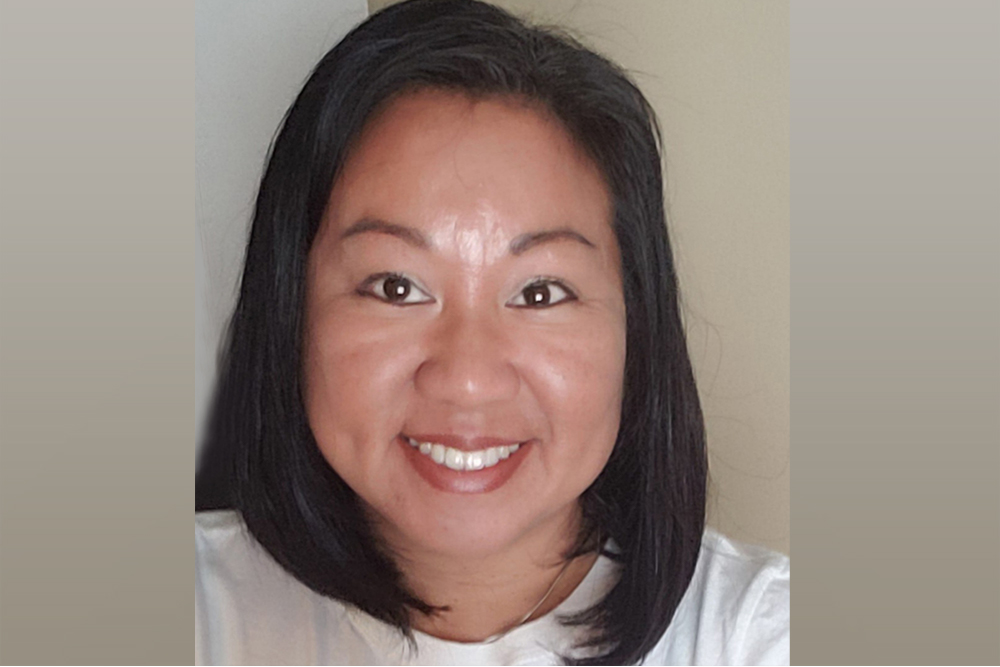
Guidance Center Names New Executive Director/CEO
Kathy Rivera takes on leadership role at Long Island’s leading children’s mental health organization
Roslyn Heights, NY, June 22, 2021 — North Shore Child & Family Guidance Center (the Guidance Center) is pleased to announce that today, June 22, 2021, Kathy Rivera will be the organization’s new Executive Director/CEO. Ms. Rivera is taking over the leadership role upon the retirement of Andrew Malekoff, who served the agency for 45 years.
Ms. Rivera spent the last 14 years at the Jewish Child Care Association (JCCA), where she was the Senior Vice President of Care Management Services. Her experience at this multi-service child welfare agency, which provides comprehensive social services to children and families, makes her a perfect fit for the leading role at the Guidance Center, Long Island’s leading children’s mental health organization.
“We believe Kathy will provide the strong leadership, experience and vision the Guidance Center needs to move into the future,” said Paul Vitale, Guidance Center Board President. “She has a proven track record in governance and fiscal management, and she has built and developed an expert, interdisciplinary leadership team that successfully operates a wide range of mental health, physical health, education and social well-being programs that serve more than 1,000 youth and families across Metro New York.”
“North Shore Child & Family Guidance Center’s mission not only aligns with my core values but supports my commitment to strengthening individuals and families to achieve self-determined optimum well-being,” said Ms. Rivera. “It is an honor and privilege to become part of a dynamic team and outstanding organization dedicated to ensuring equity and access with the highest quality services. I am thrilled to begin this new journey with the Guidance Center and look forward to supporting communities and families on their personal paths toward hope and healing.”
Regina Barros-Rivera will serve as COO. “The Board of Directors believes that with Kathy’s leadership and Regina’s long-standing commitment and value to the organization, the Guidance Center will continue to uphold its unwavering dedication to the Nassau community,” said Mr. Vitale.
Kathy Rivera earned her Bachelor of Arts degree from Hunter College of the City University of New York and her Master of Social Work from the Hunter College School of Social Work. She is a Licensed Clinical Social Worker and holds multiple certifications and trainings including being a Sanctuary Model (Trauma Informed) Trainer. She is a first-generation American-born child of immigrant parents from Thailand. When not working, Ms. Rivera enjoys spending leisure time with her husband, two sons and dog Luna.
About Us:
As the preeminent not-for-profit children’s mental health agency on Long Island, North Shore Child & Family Guidance Center is dedicated to restoring and strengthening the emotional well-being of children (from birth – age 24) and their families. Our highly trained staff of psychiatrists, psychologists, social workers, vocational rehabilitation counselors and other mental health professionals lead the way in diagnosis, treatment, prevention, training, parent education, research and advocacy. The Guidance Center helps children and families address issues such as depression and anxiety; developmental delays; bullying; teen pregnancy; sexual abuse; teen drug and alcohol abuse; and family crises stemming from illness, death, trauma and divorce. For more than 65 years, the Guidance Center has been a place of hope and healing, providing innovative and compassionate treatment to all who enter our doors, regardless of their ability to pay. For more information about the Guidance Center, visit www.northshorechildguidance.org or call (516) 626-1971.

These 7 Sons Share the Same Career Paths as Their Fathers, By Beth Whitehouse, Newsday, June 16, 2021
Rich Shlofmitz was the first in his family to become a doctor — and his son Evan is the second. At 6 a.m. on any given weekday, the duo will touch base at St. Francis Hospital in Roslyn before they start their day treating heart patients there.
“I came from the projects in East New York,” says the senior Shlofmitz, 66, who is chairman of the cardiology department at St. Francis. “I knew I wanted to do something important with my life.”
Rich’s dedication to medicine made an impression on Evan, 38, when he was growing up in Manhasset. “It was an easy choice for me to follow in his footsteps,” says Evan, also a cardiologist and director of intravascular imaging at St. Francis.
Here are the stories of seven Long Island sons who are in the same line of work as their fathers — and may even work side-by-side with them.
Years ago, when Jonathan Cooper, 71, a social worker from West Hempstead, ran a support group for children with special needs at the North Shore Child & Family Guidance Center, he would bring several of his five kids to interact with the group socially. So, it was no surprise to him when three of his sons followed him into the counseling field.
Aaron Weintraub, 42, his son from his first marriage, works with social skills groups and at a summer camp for children on the autism spectrum in Connecticut. Jacob Cooper, 31, of Massapequa, is a clinical social worker in private practice, and Raphie Cooper, 26, lives at home and is in his second year of social work school.
“It was always about service,” Jacob says. “That was really ingrained in us.” Jacob says his father always encouraged them to value a population that other people might look away from or stigmatize.
Aaron’s job is the closest match to his father’s. “As adults, I’ve had the chance to talk with him about how we both plan our curriculum and help each other with ideas and inspiration to try new things,” Aaron says.
For Father’s Day, the elder Cooper plans to fly to Chicago, where he grew up, with Jacob to show his son the area. “I want him to see that. Those were formative years for me,” Johnathan says.
“Whenever I had off from school, I’d shadow my dad around the hospital and got to see the impact he made on patients,” Evan says of his childhood. “He set the bar high with his innovation and work ethic and his unique way of practicing medicine.” Now that Evan is a peer, he will bounce ideas and approaches off his father, he says.
On the flip side, the elder Shlofmitz says his son’s involvement with clinical research got him motivated to start doing research as well. “I owe a lot to my son,” Rich says, including keeping him up on cutting-edge technology. “I’m so proud. The best part is watching his interaction with patients and staff. Everybody loves him.”
And who knows? There may be a third generation of Shlofmitz cardiologists — Evan and his wife, Lisa, who live in Port Washington, are expecting a baby girl in August.
Peter Lombardo’s late wife was the catalyst for Mike Lombardo joining in his father’s electrical business. The elder Lombardo, 65, launched his eponymous electrician company in Deer Park in the 1980s; his wife was his business partner, handling payroll and accounts.
Their son, now 31 and living in Farmingville, initially wasn’t interested in becoming an electrician. But when his mother got cancer, she showed Mike the ropes so he could take over her position. She died in 2015.
If that event hadn’t transpired, Mike says he wouldn’t have earned his own electrician’s license. “Not a shot. That’s not to say I don’t like it, but there’s just no way. Nope. I would probably have done something in banking or finance.”
The pandemic has been a boon to the company’s business. “Everybody was home, so they were doing home improvements,” Peter says. Many people put in pools that needed wiring, he says.
At some point, Peter hopes Mike will take over the business completely. “I look forward to the day when he says, ‘Dad, I got this,’ and I’ll go on my merry way.”
It was Luis Rosa’s wife who spurred her husband and son working together as well. When Amazon opened a facility in Shirley, she suggested that all three of them apply for jobs, and the trio was hired on the overnight shift Sundays through Wednesdays.
Sometimes they are unloading, other times they are scanning and stowing packages. They drive to work together, and they eat together on breaks.
“Working with my son has been one of the best things I’ve ever experienced. I’ve seen him grow up as a kid, and then to see him working with me, it’s such a great experience,” says Luis, 42. William, 19, says he looks up to his dad: “I always see him working really hard, and I want to work just as hard as he does.”
The toughest part for the duo was adjusting to the new work schedule. “My parents go to bed at 5 p.m.,” says William, who on the other hand, likes to sleep as soon as he gets home from work. The family lives in Mastic Beach, along with William’s two siblings and his sister’s two children. “Sometimes they’re making noise in the house,” he says.
At one point in the pandemic, the whole family had COVID-19. “I just can’t wait until all this is over,” William says. “It’s been really hard on us. Luckily, we didn’t get it that bad.”
When Lee Gaddy, now 64, of Wheatley Heights, joined the New York City Police Force in 1981 and was assigned as a housing officer, it was “the best thing that could have happened to me,” he says. His son, Sean, 36, echoed his dad’s words when talking about his own experience as a Nassau County police officer, now assigned to the department’s Police Athletic League program working on community sports programs to engage kids.
For Father’s Day this year, the family plans to barbecue before Luis, William and Margarita, 40, head to the job.
“Growing up, obviously watching my dad go off to work, it was always interesting to hear his stories over the dinner table,” Sean says. “My dad, he was big on telling me to take the Civil Service test. I thank him to this day. I never would have done it without him putting it in front of me. It’s the best thing I ever did.”
This isn’t the first time the younger Gaddy has mirrored his father, says Lee, who retired after 22 years in law enforcement and now works for the Copiague School District as a security person. “Sean is well-liked, like me. He played high school sports, just like me. I’m happy because I think he has that type of attitude I had coming on: Do the right thing.”
Sean recently had his first child, and he plans to spend his first Father’s Day in part by wearing matching shirts with his newborn during a breakfast visit to Lee’s home. He also hopes to follow in his father’s footsteps as a parent: “I hope to be what he is to me with my son,” Sean says.

North Shore Child Guidance Center Outing is Back, Blank Slate Media, May 14, 2021
North Shore Child & Family Guidance Center has announced that its Jonathan Krevat Memorial Golf & Tennis Classic is back this year at a spectacular new location, Nassau Country Club in Glen Cove! The event, which will be held on June 14th, raises money for the Guidance Center, Long Island’s premiere children’s mental health organization.
“Our work bringing hope and healing to kids and families is more important than ever,” said Michael Mondiello, one of the event’s co-chairs and a Guidance Center board member. “The pandemic has created enormous stress and anxiety, and we are here to help address the crisis in children’s mental health.”
Co-chair Michael Schnepper concurred, stating, “The past year has been difficult for adults, but in some ways it’s been even harder for young people. Their entire normal routines with school, friends and extracurricular activities were upended, and the impact is going to continue long after COVID-19 is behind us. That’s why this fundraiser is such a crucial event.”
The Krevat Cup is one of the Guidance Center’s most anticipated events of the year, providing a full day of activities. “Golf may be the main feature, but tennis is my game,” said Troy Slade, co-chair and board member. “And we’re adding pickleball to the event for the first time ever, so that’s going to provide even more opportunity for friendly competition.”
While all current health and safety protocols will be in place to protect the safety of guests and staff, most of the event will be held outdoors, making it a perfect opportunity to enjoy great games while benefiting an important cause. “The golf course is among Long Island’s best,” said board member Dan Oliver, this year’s newest Krevat Cup co-chair. “It’s going to be a terrific day, including a delicious breakfast, lunch and cocktail hour. I hope many community members will join us to support the life-saving work of the Guidance Center.”
The event will also feature an exclusive silent auction, which is open to everyone, regardless of whether they buy tickets for the day. Bidding begins on June 1st.
For those interested in participating, becoming a sponsor or placing a journal ad, it’s not too late! Contact Nicole Oberheim, Noberheim@northshorechildguidance.org, (516) 626-1971, ext. 337
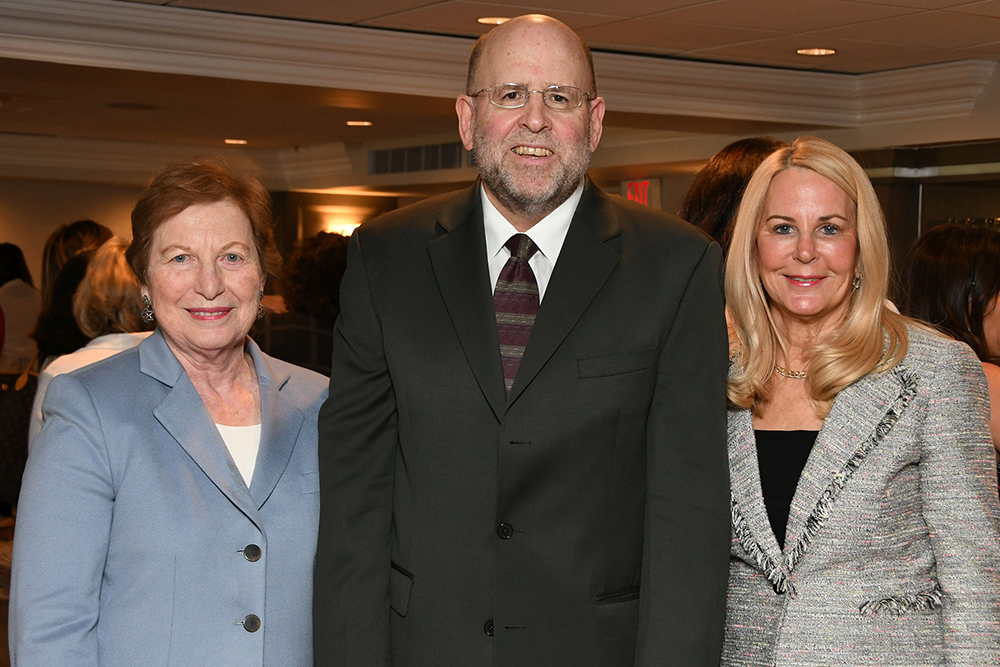
Closing Out a Career of Helping Others, Anton Media, by Dave Del Rubio, May 17, 2021
Guidance Center executive director retires after 45 years.
When Andrew Malekoff retires in July, it will have been after spending his entire 45-year career at Roslyn’s North Shore Child and Family Guidance Center. When he arrived as an intern to do his second-year field placement while working towards his masters degree at the Adelphi University School of Social Work, little did Malekoff know he’d leave four and a half decades later as the executive director. It’s an experience he treasures and attributes to how special a place North Shore was to work at all these years.
“It was really inspiring for me to become a part of an organization that was exclusively devoted to working with children, youth, teenagers and families,” he said. “We saw anybody that needed us without turning anybody away for inability to pay. Being able to be a part of an organization that had access to universal mental health care was really exciting. It was also innovative and saw children not as broken part. We invited the whole person to participate in the work that we did, so there was a kind of culture and tradition that I became a part of and was ultimately able to carry forth. That was really exciting. It felt like the right fit for me and was a big part of why I stayed there for so long.”
Having had a front-row seat, Malekoff saw changes in the clientele that sought North Shore’s help. “Just being able to observe things from the waiting room alone, you could see there was a big change over time.” Malekoff recalled. “It was a much more homogeneous, white, ethnic population [in the beginning]. Over time, there were more people of color and different religions. People dressed differently—some with religious garb. There were different accents, languages and so forth. Different groups over a period of time that were more reticent about going outside of the home and wherever they might traditionally go to seek help—for them to see that this was an alternative they could take advantage of versus what was available.”
During Malekoff’s run, he spent 15 years as a monthly contributor to Anton Community Newspapers. Publisher Angela Anton invited him to pen a column that initially started out as Parenting in February 2007 before it evolved into Parenting Matters a few years later. Despite having extensive experience as the author of a widely used textbook (Group Work with Adolescents: Principles and Practices, now in its third edition) and being the editor of the professional journal Social Work with Groups, the New Jersey native admits this new outlet required a creative pivot on his part.
“The discipline of writing a monthly column was something new to me,” he said. “It was a great opportunity and I like to take on new challenges like the experience of coming up with ideas and then putting something into 500 or 600 words and appealing to not just a professional audience, but to the regular citizenry so to speak. At the time, the column was called Parenting and I had wanted to change it and discussed that at the time with Angela. We changed it to Parenting Plus. I wanted to put the ‘Plus’ in because I felt there were things that I could write about that would fall outside of the more rigid guidelines of writing about parenting and kids. I thought [it could encompass] other issues whether it was government, policy or with certain news events that were reflections of issues of mental health that people would be interested in and give me a little more latitude.”
Over time, Parenting Plus became on of Anton’s more popular columns, always generating plenty of interest in print along with a heavy flow of traffic on the web. For Anton, bringing Malekoff into the editorial fold was an easy decision, particularly given the work she’d seen him do in his role at the North Shore Child and Family Guidance Center.
“I have know Andy from the start as a board member and as a dear friend,” she said. “He was responsible for starting many new programs and receiving many government grants at the North Shore Child And Family Guidance Center. The center was stronger because of him and as a columnist, we will always cherish the insight he brought to every story he wrote.”

Future Executive Director Andrew Malekoff got his start with the North Shore Child & Family Guidance Center as an intern in 1977
Malekoff’s path to a career in social work wasn’t readily apparent in the beginning. Born in Newark, he moved to the leafy Jersey suburb of Maplewood, eventually going to Rutgers University on a football scholarship as a linebacker, eventually being one of the two defensive captains of the 1972 Scarlet Knights football team. And while he earned a bachelor of arts in business, the idea of serving others came via work with volunteer organizations, first at Rutgers and then following his university graduation.
“When I was attending Rutgers University. I joined something called Rutgers Community Action, which was sort of a Big Brothers-type program,” he said. “That was my first exposure that I had to anything that would be considered close to social work. I majored in economics and thought I would go into business. [Social work] wasn’t anything I pursued. After trying a few different things after college, I joined VISTA, which is Volunteers In Service To America, which is the domestic equivalent of the Peace Corps. I went out to Grand Island, NE, where I lived and worked in a Mexican-American community for about three years. It was during the course of my work with teenagers and families there that I decided that I wanted to pursue this as a career.”
Having spent 45 years helping families and youth get through trauma, one thing Malekoff says hasn’t changed is the anxiety and depression young people continue to experience. For him, these experiences require quite a bit of self forgiveness for the people going through these trials and tribulations.
“It’s a harsh world and it’s easy to be too hard on yourself,” he said. “Anthropologist Joseph Campbell came up with a favorite quote of mine ‘Perfection is not lovable. It’s the clumsiness of a fault that makes a person lovable. It’s something that’s a little longer than go easy on yourself. I give that out because sometimes I think people can be too hard on themselves and think that they have to be perfect. It’s a great lesson for parents and for parents to give to kids. It doesn’t mean you don’t try to hard or strive for excellence. It means you go a little bit easier on yourself than otherwise.”
Top photo: from left: North Shore Child and Family Guidance Center board member Rita Castagna, North Shore Child and Family Guidance Center Executive Director Andrew Malekoff and Anton Media Group publisher Angela Anton
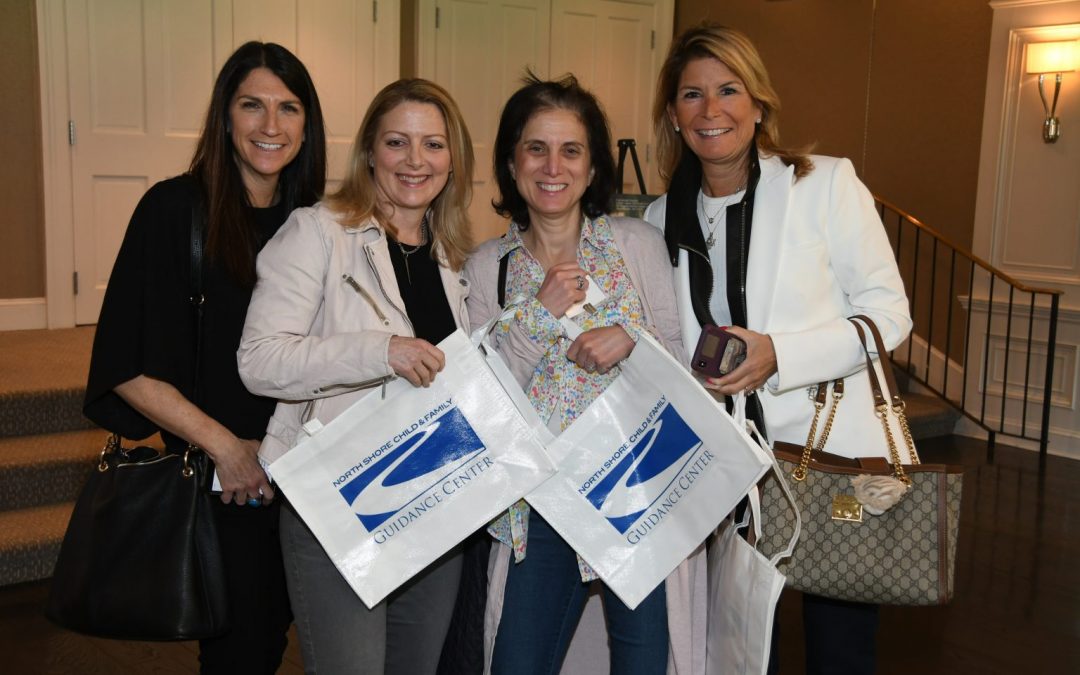
Guidance Center Hosts Shopping Benefit in Roslyn Village, Anton, April 28, 2021
On Tuesday, May 4, you can do good while shopping for some of the finest goods around as North Shore Child & Family Guidance Center hosts “Care for Kids: Spring Shopping Spree.” Many of Roslyn Village’s best stores will be donating a portion of the day’s proceeds to the Guidance Center, Long Island’s premiere children’s mental health nonprofit organization.
As of April 21, the stores participating in the event are: Jill Scherer Ltd., Katherine Tess, Shag New York and Transitions, but the Guidance Center expects the list to grow significantly leading up to the May 4 event.
Leslie Cohen, owner of Transitions, has been a Guidance Center supporter for several years.
“The organization is easy to get behind and support, especially this year, with so many children being affected by the pandemic,” Cohen said. “Having a safe place to help the children cope is wonderful.”
She added that the Spring Shopping Spree will be “a feel-good day.”
According to Ann Corn, owner of Shag New York, nothing is more important than the health of our children.
“Mental health issues do not discriminate by race or financial backgrounds,” she said. “Shag is especially proud to be part of this fantastic fundraising day for the Guidance Center. We are honored to be involved with this amazing organization.”
Alexis Siegel, a member of the Guidance Center’s Board of Directors, expressed the agency’s gratitude for the generosity of participating Roslyn store owners.
“We are all so lucky to live in an area where our businesses and community members are so philanthropic,” Siegel said. “They understand the importance of supporting our work to bring hope and healing to kids and families who are struggling with issues such as depression and anxiety during these incredibly challenging times.”
Shoppers can visit the Guidance Center booth outside of Shag to take part in a raffle that will include many exclusive items.
For more information about the event, contact the Guidance Center at 516-626-1971, ext. 320.
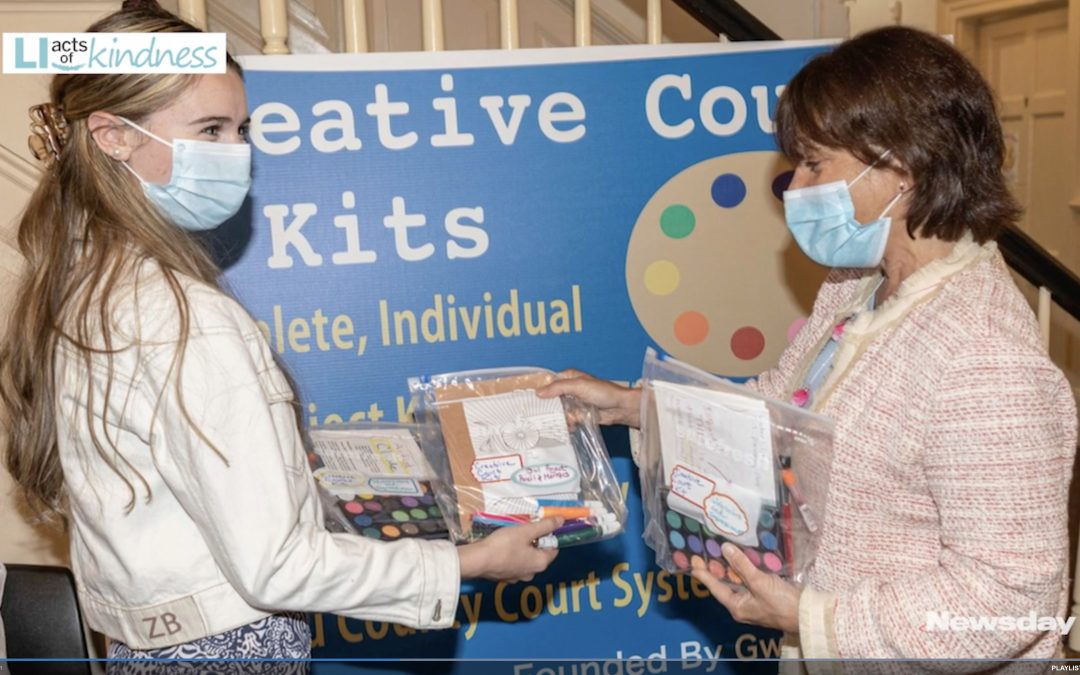
Teen creates 175 art kits for children to learn about Picasso, Impressionism, Newsday, May 6, 2021
“It’s a fun way to relax,” said Gwen, of Locust Valley. “It’s almost like a therapy, to sit down and do some artwork.”
Gwen wanted children on Long Island to have the same opportunity to unwind and express themselves creatively. They just needed the supplies to do it.
So once again heading to Michael’s, Gwen bought watercolor paints, paintbrushes, colorful pencils, markers, paper and yarn. She’s assembled 175 art kits and donated them to the North Shore Child and Family Guidance Center in Roslyn Heights, a not-for-profit children’s mental health agency.
Gwen made four different versions of the kit, distributing the supplies where they each fit. The “watercolor and Impressionism kit” contained a lesson plan on painter Claude Monet and a brief history of Impressionism. The “mixed medium kit” had a picture of an owl to be colored in and an inspirational quote.
The “collage kit” included facts on artist Pablo Picasso. The most recent kit she’s made contained a canvas, acrylic paint, a paint brush, painter’s tape and a Sharpie pen, so that kids can create geometric shapes.
“I remember coloring as a kid was so much fun to do in art class,” said Gwen. Now, she prefers collaging and painting.
“I wanted to merge both what I liked to do when I was younger, and what I like to do now, and make it good for the younger age group,” she said.
When she first started putting the kits together, Gwen envisioned giving them to children. When she was done, she realized that may not be her only audience.
“Really, any age could do it,” she said. “Any age could have fun with this.”
The North Shore Child and Family Guidance Center serves clients from birth to age 24, according to its website. It provides services that address mental health for children and their families throughout Nassau County, said Lauren McGowan, the director of development. That includes programs on suicide prevention, depression and anxiety, specifically geared toward youth.
Dr. Sue Cohen, the director of early childhood and psychological services, is excited for her clients in particular to use the art kits. Her young clients don’t always have the words to communicate their emotions — that’s where art comes in, Cohen said. Anger can be expressed by scribbling, and fear by drawing what the monster under the bed looks like.
“We use art as a therapeutic tool,” she said. “It’s a great icebreaker to begin to establish rapport with children.”
Cohen added that the art kits arrived at a perfect time for the center: the clinicians had just begun to discuss a safe transition back to in-person therapy sessions and interactive programs, including details such as how to keep crayons and markers clean.
“These individual kits [Gwen] made are perfect because each kit has their own pens, markers and paints,” Cohen said. “As the kids are coming in, they can have a bag designated with their own art supplies, and they can keep them in the office for continued use or take it home.”
McGowan said she’s “delighted” that Gwen has taken initiative and was thoughtful in her approach to helping the center.
“It’ll help our clinicians to communicate better, because kids will open up as they start to feel comfortable and as they’re drawing,” she said. “Art is another modality they can have in their own toolbox, so she’s really given us a gift in that way.”
Gwen dropped off 150 art kits on April 8, and 25 more on April 29. This was a labor of love for her — as she carefully crafted each kit, she said she daydreamed of the moment that she would finally donate them and offer children the same creative outlet that’s helped her through the pandemic.
“Finally getting to hand them over was so exciting,” she said. “I’m excited to be making some more.”
She’s still brainstorming ideas for different art kit themes. McGowan said Gwen’s motivation aligns with the center’s mission to help children in need.
But Gwen’s biggest hope is that children will see that you don’t necessarily have to be a great artist to create something beautiful.
“I hope that younger kids can realize that everybody can be creative and everybody can have fun with art,” Gwen said. “It’s not such a serious thing; you can do whatever you want. It’s something anyone can do and have fun with.”
Click to watch the video interview
Gwen Jones, 17, recently put together 175 art kits and donated them to the North Shore Child and Family Guidance Center in Roslyn Heights. Her hope is that children can use art as an outlet to express themselves, just like she did throughout the coronavirus pandemic. Credit: Howard Schnapp: Photo credit: Peter M. Budraitis Photography
By Rachel Weiss, Rachel Weiss joined Newsday in 2016. She writes and produces local content for newsday.com, including stories on religion and colorful characters from Long Island.

Guidance Center Hosts Shopping Benefit in Roslyn Village, Blank Slate Media, April 21, 2021
On Tuesday, May 4, you can do good while shopping for some of the finest goods around as North Shore Child & Family Guidance Center hosts “Care for Kids: Spring Shopping Spree.”
Many of Roslyn Village’s best stores will be donating a portion of the day’s proceeds to the Guidance Center, Long Island’s premiere children’s mental health nonprofit organization.
As of April 21, the stores participating in the event are: Jill Scherer Ltd., Katherine Tess, Shag New York and Transitions, but the Guidance Center expects the list to grow significantly leading up to the May 4th event.
Leslie Cohen, owner of Transitions, has been a Guidance Center supporter for several years.
“The organization is easy to get behind and support, especially this year, with so many children being affected by the pandemic,” said Cohen. “Having a safe place to help the children cope is wonderful.”
She added that the Spring Shopping Spree will be “a feel-good day!”
According to Ann Corn, owner of Shag New York, nothing is more important than the health of our children. “Mental health issues do not discriminate by race or financial backgrounds,” she said. “Shag is especially proud to be part of this fantastic fundraising day for the Guidance Center. We are honored to be involved with this amazing organization.”
Alexis Siegel, a member of the Guidance Center’s Board of Directors, expressed the agency’s gratitude for the generosity of participating Roslyn store owners. “We are all so lucky to live in an area where our businesses and community members are so philanthropic,” said Siegel. “They understand the importance of supporting our work to bring hope and healing to kids and families who are struggling with issues such as depression and anxiety during these incredibly challenging times.”
Shoppers can visit the Guidance Center booth outside of Shag to take part in a raffle that will include many exclusive items.
For more information about the event, contact the Guidance Center at (516) 626-1971, ext. 320.
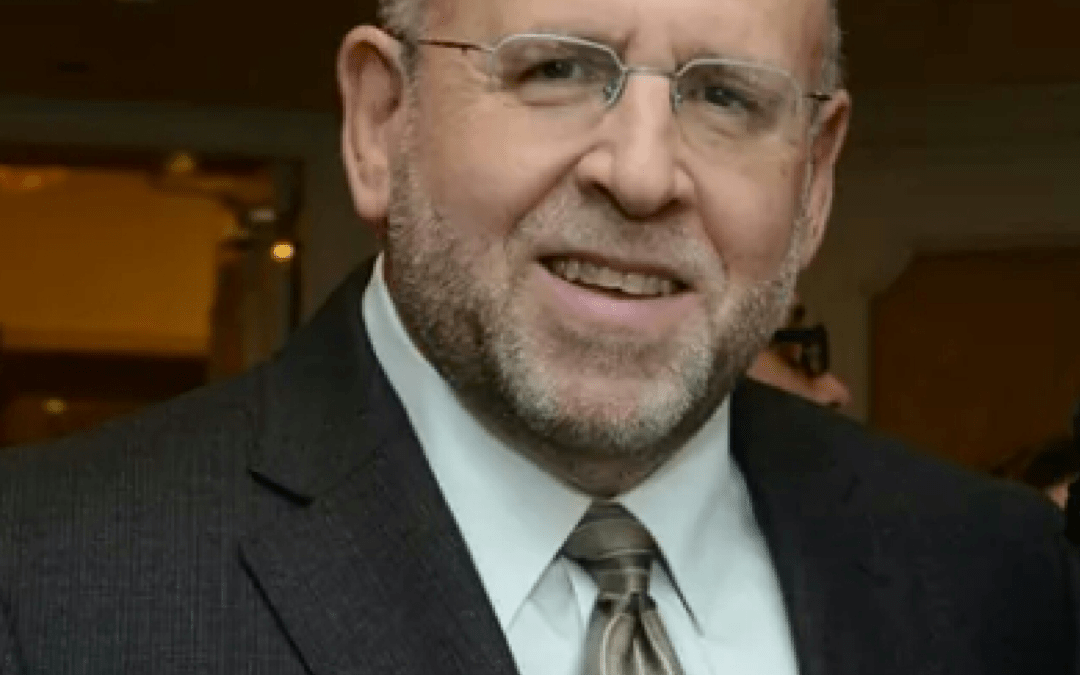
Full Circle from Mischief to Good Trouble, by Andrew Malekoff, Blank Slate, April 19, 2021
Last week an article appeared about me in this newspaper entitled, “Guidance Center CEO announces retirement.” The average age of retirement in the US is 61. When I retire in two months I will have surpassed the average by nine years.
Among the articles I have been reading about retirement are those that offer cautionary notes and tips. For example, I learned that I should not expect retirement to feel like an endless vacation, I should structure my time and I should not neglect my appearance.
The last one will be difficult after working from home during the year of the pandemic. Although I think I’ll add a third pair of pants to the rotation and buy a couple of new sweatshirts.
With respect to structuring my time, although I am retiring after 45 years with the same organization, I have also held a part-time job for 31 years as a journal editor, which I will continue. I also plan to continue writing this column for as long as my imagination will take me and publisher Steve Blank will have me.
I never imagined retirement as an endless vacation, although living in Long Beach has always had a vacation feel to it, being within walking distance of the boardwalk and ocean. Driving home from Roslyn Heights to Long Beach on the Meadowbrook and Loop Parkway since the late 1970s offered me the benefit of landing in a resort every single day.
Despite addressing my impending retirement in a lighthearted manner here, I am well aware that there are risks and losses associated with this major life transition that cannot be simply brushed aside.
I’ll be losing daily contact with my dear workplace friends, some of whom I’ve known for decades. A benefit of my job has been an excellent health insurance plan. As a cancer survivor that has been vital.
Naturally, I will apply for the health insurance I will need in retirement, but I already know that it won’t be quite as good as what I have had for years and that the out-of-pocket costs for certain prescription medications are prohibitive.
As a social worker, I have always been an advocate. I can already see that if I choose to in retirement, there will be no shortage of causes to take on if I wish to continue to employ my advocacy skills.
One of the more mundane operations in preparation for my retirement has been cleaning out my office at work and making some room for my books and other items at home. In making space at home, I came across a box that contained some of my old report cards.
My first-grade teacher Gertrude Finkel wrote: “Andrew tends to go to extremes lately. He is either the best boy in the class, or he creates mischief.” A few years later my Hebrew school teacher wrote: “Andy has some disruptive influence on his neighbors.”
William Wordsworth wrote that “the child is the father to the man” in his 1802 poem “My Heart Leaps Up.” To the extent that this applies to one’s later years, I’m not sure that I want to create mischief in retirement, although it does sound like it could be fun.
Upon re-reading my teachers’ comments, I have come to believe that my disruptive behavior was a precursor, a primitive sign if you will, of what the late civil rights activist, Congressman John Lewis referred to as “getting into good trouble.” I think I can do that, whether or not I neglect my appearance in retirement.

The Evolving Landscape of Children’s Mental Health, by Andrew Malekoff, April 16, 2021
The good women and men who started the Guidance Center had the foresight, intellect and diligence that led to the creation of a force that would provide quality mental health care for hundreds of thousands of children, teens and family members for nearly seven decades.
I owe the founders a debt of gratitude for offering me such an enriching spot to hang my hat for almost all my adult life. Confucius was right when he said, “Choose a job you love, and you will never have to work a day in your life.”
Although the 45 years have come and gone swiftly, I’ve developed a capacity akin to time-lapse photography that has enabled me to observe change through a series of evolving images.
The waiting room of Guidance Center headquarters in Roslyn Heights provides a snapshot of who seeks help. And who seeks help at any given time is in part a function of how mental illness and mental health are viewed by the public.
As I contemplate my 45 years, I discover that the waiting room has become a much more richly heterogeneous place with respect to race, ethnicity, religion and language. Increasingly, families who were once averse to seeking outside help for emotional issues occupy that space like never before.
What led to the change? A combination of factors including sustained public education efforts aimed at reducing stigma and ambitious advocacy initiatives directed at reducing disparities and increasing access to care. Both education and advocacy combined to ensure that diseases of the brain be treated on par with diseases of the body.
Along with the demographic changes in who seeks help, there came the need for diversifying the workforce and providing consistent professional education to enhance the cultural literacy of frontline mental health practitioners. This is especially germane today when the social and political winds inside our nation reveal more profound divisions than in all my time at the Guidance Center.
Intersecting with my reel of waiting room images is a reel of traumatic events that I never would have predicted when I started in 1977, all of which impacted the children who sat in our waiting rooms. Just a few examples: the Challenger explosion (1986), LIRR massacre (1993), Columbine High School shooting (1999), 9/11 attacks (2001), Madoff financial disaster (2008), superstorm Sandy (2012), Sandy Hook Elementary School shooting (2012), Parkland High School shooting (2018) and today’s COVID-19 pandemic.
Throughout the reel is also a steady succession of racial injustices, deaths of unarmed people of color at the hands of law enforcement officers. The final frame I see is the January 6 domestic terrorist insurrection in Washington.
In today’s waiting room sit people of all colors and backgrounds with personal stories of trauma and grief, and far too many young ones who feel as though they cannot live one day longer. They live in a world in which their mental health struggles are compounded by a toxic surround that we as adults either fuel, ignore or deny but cannot escape.
These children have profound troubles and live in a profoundly troubled world. Yet there is hope in places like ours, where people of all backgrounds and skin colors share the dream that their children might live a peaceful and prosperous life in a better world.
My message to anyone who wishes to follow in my footsteps is to never lose sight of the situational surround. Context counts. We can all do better to understand our children from the inside-out and the outside-in. And, if you’re fortunate enough to find your authentic voice, don’t let anyone take it away from you. Healing involves quality care and a strong voice underpinned by a social consciousness, social conscience and an enduring quest for social justice.
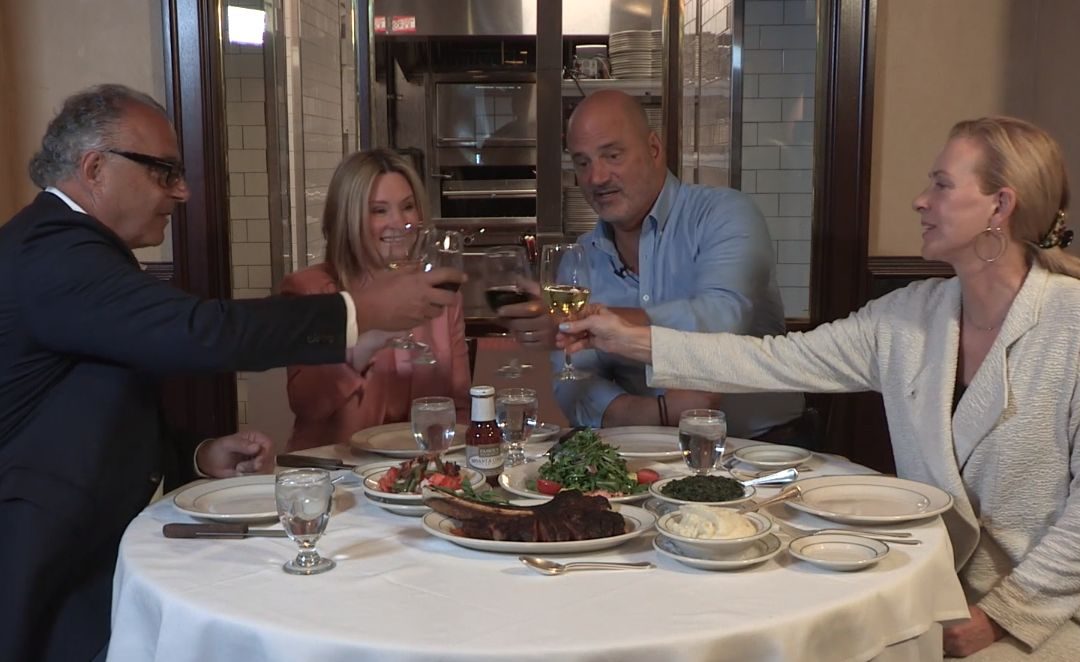
Guidance Center Hosts Spring Lunch-In, March 30, 2021, Blank Slate
When North Shore Child & Family Guidance Center decided to cancel its in-person Spring Luncheon fundraiser this year to keep its supporters safe during the pandemic, the organization came up with a creative alternative: the first-of-its-kind Spring Lunch-In, a virtual event held on March 24 that featured fabulous recipes and table design tips from some of our area’s most philanthropic businesses.
George and Gillis Poll, restaurateurs extraordinaire and owners of Bryant & Cooper Steakhouse, showcased three of their most popular recipes, giving viewers step-by-step instructions in the kitchen of the iconic Roslyn restaurant. They also gave a behind-the-scenes tour of their world-class Bryant & Cooper Butcher Shop & Retail Market, which is adjacent to the restaurant and open to the public.
Speaking to the mission of the Guidance Center, George Poll said, “The work they do to help children and families struggling with mental health is significant. My brother Gillis, my wife Kristen and I are proud to be part of the Center’s continuing great work.”
The event, held over Zoom, also featured talented designer Susan Micelotta of White + One, who gave attendees tips on how to create a beautiful outdoor table setting for spring that is sure to impress. All the products shown are available at the Port Washington store.
“I was proud to be a part of the Spring Lunch-In,” said Micelotta. “Children are our future, and we need to make a better world for them to live in by supporting and giving all that we can to organizations such as the Guidance Center.”
Guidance Center Board Member Alexis Siegel, who joined the Poll brothers and Micelotta as the event’s gracious hostess, was thrilled at the Spring Lunch-In’s success. “We’re so grateful to George, Gillis and Susan for their dedication to our work,” said Siegel, who co-chaired the event with Jan Ashley and Amy Cantor “The pandemic has created a real mental health crisis, with children, teens and their families experiencing high levels of anxiety and depression. I’m proud to be part of an organization that addresses these needs with compassion and expertise.”
Guidance Center Board Member and Spring Lunch-In committee member Jo-Ellen Hazan, who joined Siegel at the lunch and was instrumental in planning the event, said, “The Guidance Center is blessed to have so many wonderful community members who support our mission. Their dedication makes our work possible.”
The Guidance Center is looking forward to returning to Glen Head Country Club for next year’s Spring Luncheon, an in-person fundraiser on April 28th, 2022. The highly anticipated event will feature card games, Mahjong and a delicious buffet.
All proceeds for the Spring Lunch-In support the Guidance Center’s work to bring hope and healing to the children and families in our local communities. To learn more, visit www.northshorechildguidance.org or call (516) 626-1971.
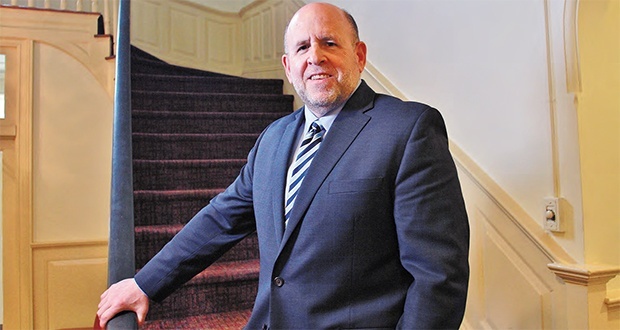
Guidance Center CEO Announces Retirement, Blank Slate, April 14, 20201
After 45 years of dedicated service, Andrew Malekoff has announced his retirement from North Shore Child & Family Guidance Center, Long Island’s premiere children’s mental health agency.
Malekoff, who joined the Guidance Center as an intern in 1977, has been the organization’s Executive Director/CEO for 15 years. He has a distinguished record of leadership and innovation, creating many of the agency’s most successful programs.
Malekoff provided administrative leadership in the development of the Guidance Center’s substance use treatment and prevention program, which made it the first organization on Long Island to be awarded an Outpatient Chemical Dependency for Youth License to treat adolescents.
As a leading voice in advocating for parity, Malekoff has testified in Albany calling for timely and affordable access to mental health and substance use care. His dedication led to a partnership with Long Island University on a research study called Project Access, which revealed massive inequities and roadblocks inherent in accessing mental health care.
The study has been cited as an important tool in advocating for essential systemic change.
Malekoff is a prolific and highly respected author whose articles have appeared in local and national outlets. He is a renowned expert in group therapy and wrote the definitive book on the subject: “Group Work with Adolescents: Principles and Practice,” which has been published internationally.
In partnership with Nassau B.O.C.E.S., Malekoff developed the Guidance Center’s Intensive Support Program (ISP), a school-based mental health program serving children from ages 5 to 21 years of age from all 56 Nassau districts. The program, now in its 25th year, provides students who are experiencing serious emotional problems an alternative to institutional or more restrictive settings.
During his tenure as executive director/CEO, Malekoff spearheaded the Guidance Center’s efforts in childhood mental health research in partnership with major research institutions including the New York State Psychiatric Institute at Columbia University, NYU Child Study Center and Northwell Health.
“Under Andy’s tenure, the Guidance Center has been there for families on Long Island during many crises, including the 9/11 attacks, Hurricane Sandy and the pandemic,” said Paul Vitale, Board President. “His leadership has been steady, strong and innovative.”
Nancy Lane, former board resident who has worked with Malekoff for three decades, said, “Over his many years at the Guidance Center, Andy has provided compassionate, expert care to children and families experiencing issues such as depression, anxiety, bullying and other serious challenges.
His advocacy work and dedication to ending the stigma and discrimination surrounding mental illness is unmatched. While I have no doubts that the agency will continue to thrive, Andy will be sorely missed.”
